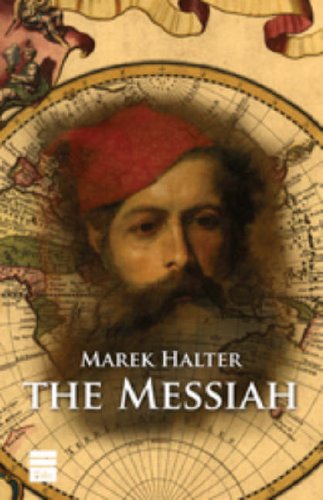The Messiah
Author Marek Halter was born in Warsaw and at age five crawled with his family through the sewers to escape the Nazi extermination of the ghetto. His previous novels, written originally in his adopted French, include Jewish interpretations of The Book of Abraham and the popular Canaan Trilogy (Sarah, Zipporah and Lilah). Usually, Jews tend to distance themselves from the “half-mystic, half-adventurer” who appeared in Venice in 1524 claiming to be the prince of an eastern Jewish kingdom nobody had ever heard of. Halter’s “false” Jewish Messiah, David Reubeni in the 16th century, struggles very humanly with using or misusing his persecuted people’s belief in his divinity in order to lead them to return to their lost homeland. Recently expelled from Spain and often forced into conversion, Europe’s Jews live as refugees in their native lands. Europe’s Christian princes consume one another with Reformation-religious and more mundane conflicts, allowing Sultan Suleiman the Magnificent and his Turks to march unhindered to the walls of Vienna. Wouldn’t it be more reasonable for Christian and Jew to join forces and drive the Turk from the Holy Land in order to re-establish a Jewish homeland in which the Christians, too, could have access to their holiest sites? To this end, Reubeni (whose journal still exists) appears appealing to the pope first and then to ruler after ruler. In Portugal, he causes a young man of converso heritage to reconvert, including self-circumcision—not at all what the Christian monarch wants to see. This zealot forces Reubeni’s hand, complicating what was meant to be a simple military action with divine overtones—and tragic results.










